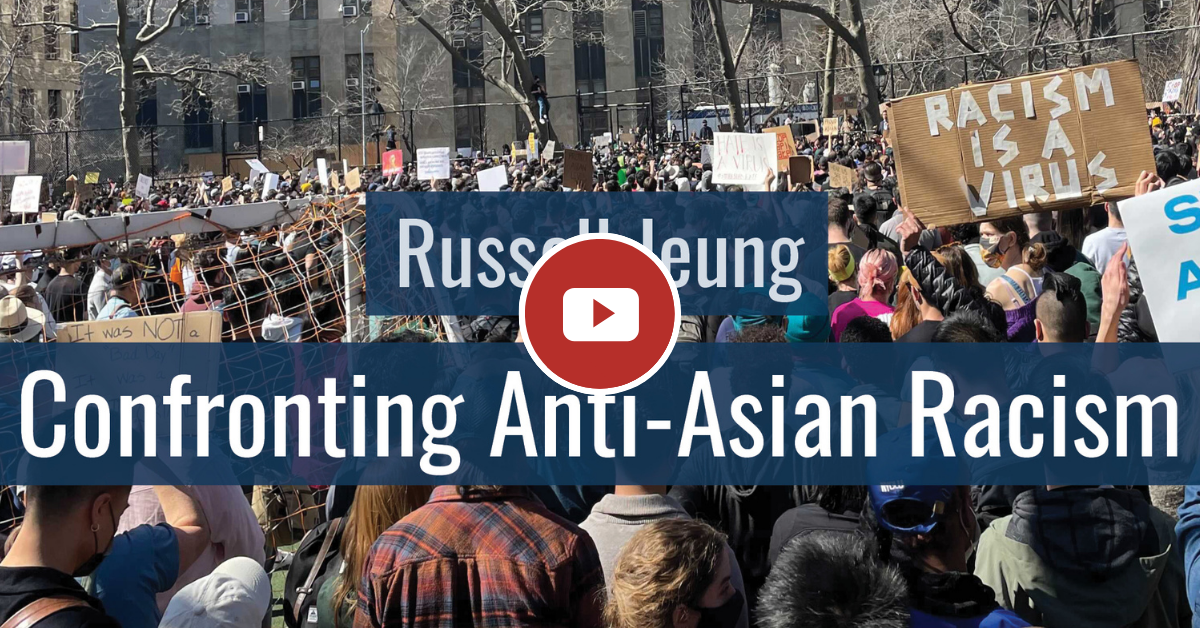Monday, April 12, 2021 | 8:00 PM EDT - 9:30 PM EDT
Zoom webinar | Judy Chu, Jessica Lee, Ian Shin
While violence toward Asian Americans has always existed in the United States, the community has faced racist violence and hate crimes at a much higher rate over the last year. Between March 2020 and February 2021, Stop AAPI Hate reported 3,795 hate incidents nationwide. Experts argue this phenomenon has been fueled by Sinophobia, anti-China foreign policy, and xenophobic political rhetoric unleashed during the Covid-19 pandemic.
On April 12, 2021, the National Committee held a virtual two-part program in which Jessica J. Lee and Ian Shin discussed the impact of anti-China political rhetoric on the current domestic U.S. climate, and Congresswoman Judy Chu addressed anti-Asian racism through legislative change.
Below are the five key takeaways from the panel discussion:
- Jessica J. Lee: U.S. foreign policy is influenced by underlying racial components; U.S. foreign policy can widely vary depending on who has a role in the decision-making process. The stigmatization of Asian Americans in government and concerns of dual loyalty make it difficult for patriotic Asian Americans to feel accepted, and to be able to do the work they want to do and are capable of doing.
- Ian Shin: How COVID-19 was framed by the Trump Administration, among others, exacerbated anti-China rhetoric, and in many of these cases there was not a clear distinction between the Chinese people and the Chinese government. Anti-China and anti-Chinese rhetoric continue to be used as a way to take a “tough on China” stance.
- Jessica J. Lee: Addressing Anti-Asian racism and hate crimes in the United States will project a much stronger image of the United States and will support the United States’ soft power and appeal abroad. It is important not to fuel paranoia about China and foreign policy, and instead to be more realistic and self-aware about the United States’ domestic affairs.
- Ian Shin: There has been an increase of Asian American stories represented in popular culture and media, and this is significant because it relates back to cultural citizenship, the idea that aside from their legal belonging in the United States, there is a layer of social and cultural belonging that Asian Americans still lack. With more representation of Asian American experiences in popular culture and the media, more Asian American stories are now seen as everyday American stories.
- Jessica J. Lee: The United States should separate human rights promotion from military, economic, and geopolitical competition as much as possible. There are ways to promote human rights in China through a multilateral approach, such as collaborating with Muslim-majority countries. Congress can also strengthen accountability and transparency in the sales of arms that enable repression and prevent American companies from profiting off of repression. The United States can also provide targeted support on human rights in China through more humane asylum and refugee policy, extradition policy, and funding to preserve minority cultures abroad.
Below are the four key takeaways from the interview with Congresswoman Chu:
- To stop hate crimes from a legislative standpoint, we [Representative Chu and other legislators] are pushing Congress to pass the COVID-19 Hate Crimes Act, which would designate an officer of the Justice Department to facilitate expedited reviews of hate crimes and issue guidance for state and local law enforcement, as well as the No Hate Act, which will provide grants for the training of hate crime response at local law enforcements. (Both bills were passed by the Senate on April 22, 2021)
- Anti-Asian xenophobia and prejudice existed before the past year. The Trump administration’s anti-China rhetoric and FBI and DOJ’s China Initiative have resulted in the racial profiling of Chinese and Chinese American students, researchers, engineers, scientists, and even federal employees. While we should acknowledge our policy differences with the Chinese Communist Party, we should not target all Chinese people and promote China-bashing that puts Asian American lives at risk. Such behavior is not only counter-productive to American scientific advancement and economic progress, but also contradictory to American core values.
- There is a qualitative difference between Japanese American internment during World War II and the current situation. While the political power of the Asian American community was invisible or nonexistent then, we now have Asian Americans in influential positions throughout society, including 21 AAPI members in Congress and numerous elected officials at the local government level. Americans are willing, regardless of their background, to stop anti-Asian hate across the country, which was apparent in the response to the latest attacks.
- I would urge victims of hate crimes to report the crime to the STOP AAPI HATE website and for Americans to empower themselves by taking bystander intervention training, which teaches the five “D’s”: distract, delegate, direct, delay, and document.
Related Resources
NCUSCR Anti-Racism Resources webpage
NCUSCR Statement on Anti-Asian American Violence and Hate Crimes (PDF)

Judy Chu
Judy Chu was elected to the U.S. House of Representatives in July 2009. She represents the 27th Congressional District, which includes Pasadena and the west San Gabriel Valley in southern California. Rep. Chu currently serves on the House Ways and Means Committee, which has jurisdiction over legislation pertaining to taxes, revenues, trade, Social Security, and Medicare. She is the chairwoman of the Subcommittee on Oversight and a member of the Subcommittee on Contracting and Infrastructure. In 2011, Rep. Chu was elected chair of the Congressional Asian Pacific American Caucus, which advocates for the needs and concerns of the Asian American and Pacific Islander community across the nation. She helps lead the Tri-Caucus, a joint effort with the Congressional Black Caucus and the Congressional Hispanic Caucus. Rep. Chu also serves in leadership of the House Democratic Caucus as a member of the Steering and Policy Committee.

Jessica J. Lee
Jessica J. Lee (B.A. Wellesley College; M.A. Harvard University) is a senior research fellow in the East Asia program at the Quincy Institute. Her research focuses on U.S. policy toward the Asia-Pacific region, with an emphasis on alliances and North Korea. She began her career on Capitol Hill, first as a professional staff member handling the Asia region for the chairman of the House Committee on Foreign Affairs, and then as a senior legislative assistant on international security and trade for a member of Congress on the Ways and Means Committee. Ms. Lee’s analysis has been featured in The Wall Street Journal, Washington Post, Foreign Policy, The National Interest, USA Today, the Washington Times, and The Nation. She serves on the board of International Student Conferences, Inc., a U.S. nonprofit that supports student exchange between the United States, South Korea, Japan, and China.

Ian Shin
Ian Shin is an assistant professor of history and American culture at the University of Michigan, where he is also a core faculty member in the program in Asian/Pacific Islander American studies. A social and cultural historian of the United States, Dr. Shin focuses in his teaching and research on the history of U.S. foreign relations and Asian American history. He is currently completing his book entitled Imperfect Knowledge: Chinese Art and American Power in the Transpacific Progressive Era. Dr. Shin’s articles and reviews have appeared in the Journal of American-East Asian Relations, Journal of Asian American Studies, The Public Historian, and Connecticut Historical Review. In addition, he has contributed commentary to the BBC World Service, Los Angeles Times, The History Channel, and other media outlets. Dr. Shin received his Ph.D. from Columbia University.


